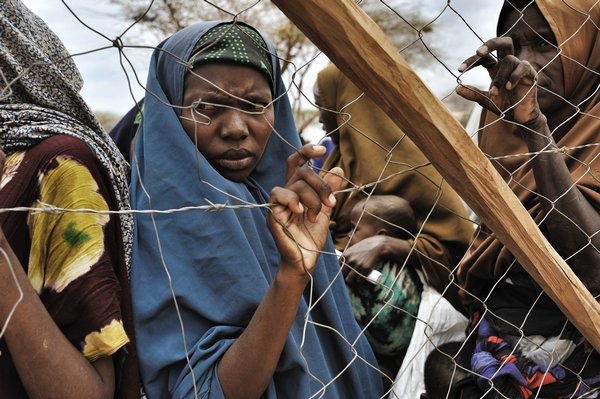Dadaab refugees trapped in the conflict

Feb 20, 2012
By Laurent LIGOZAT, Deputy Director of Operations of Médecins Sans Frontières (MSF)
For the past 20 years, the civilian population of Somalia has been trapped by armed conflicts. The drought and violence of 2011 have only worsened an already precarious situation. Hundreds of thousands of Somalis have been displaced within their country or have fled to neighbouring states to escape.
Kenya’s Dadaab refugee camps had initially been set up to host 90,000 people. However, during the first quarter of 2011, nearly 200,000 people arrived at the sites which proved ill-equipped to support such a huge influx. Soon, that number grew close to 500,000, filling the camps beyond capacity. As a result, the majority of newly arrived refugees suffered due to lack of water, food, and medical care.
This continued up until the summer of 2011, when aid agencies were finally able to properly respond to the huge needs. Today, however, we are yet again concerned for the welfare of the 470,000 refugees in Dadaab.
The conflict in Somalia has entered the camps, rendering them unable to provide refuge. Kenya, once seen as welcoming refugee populations, has become embroiled in the conflict since October, following its military intervention in Somalia. As security in the camps deteriorates, the refugees have become the main victims of the increasing violence.
Two Médecins Sans Frontières (MSF) employees were kidnapped in October, which led to most aid agencies drastically reducing their operations. The refugees have had to fend for themselves, taking over some of the services abandoned by the humanitarian organisations.
MSF now faces this dilemma: we want to continue to work in Dadaab, as the humanitarian situation is extremely serious; however, we are held back from deploying an adequate response given the insecurity of the situation. For the time being, we have chosen to focus our activities predominantly on vital medical care. We are also prepared to expand our activities as soon as conditions allow.
The health of refugees in Dadaab is in danger. As the conflict worsens, it becomes absolutely essential that warring parties ensure that refugees are protected and that their right to aid in a safe environment is respected. Thousands of vulnerable people have already suffered too much.
For the past 20 years, the civilian population of Somalia has been trapped by armed conflicts. The drought and violence of 2011 have only worsened an already precarious situation. Hundreds of thousands of Somalis have been displaced within their country or have fled to neighbouring states to escape.
Kenya’s Dadaab refugee camps had initially been set up to host 90,000 people. However, during the first quarter of 2011, nearly 200,000 people arrived at the sites which proved ill-equipped to support such a huge influx. Soon, that number grew close to 500,000, filling the camps beyond capacity. As a result, the majority of newly arrived refugees suffered due to lack of water, food, and medical care.
This continued up until the summer of 2011, when aid agencies were finally able to properly respond to the huge needs. Today, however, we are yet again concerned for the welfare of the 470,000 refugees in Dadaab.
The conflict in Somalia has entered the camps, rendering them unable to provide refuge. Kenya, once seen as welcoming refugee populations, has become embroiled in the conflict since October, following its military intervention in Somalia. As security in the camps deteriorates, the refugees have become the main victims of the increasing violence.
Two Médecins Sans Frontières (MSF) employees were kidnapped in October, which led to most aid agencies drastically reducing their operations. The refugees have had to fend for themselves, taking over some of the services abandoned by the humanitarian organisations.
MSF now faces this dilemma: we want to continue to work in Dadaab, as the humanitarian situation is extremely serious; however, we are held back from deploying an adequate response given the insecurity of the situation. For the time being, we have chosen to focus our activities predominantly on vital medical care. We are also prepared to expand our activities as soon as conditions allow.
The health of refugees in Dadaab is in danger. As the conflict worsens, it becomes absolutely essential that warring parties ensure that refugees are protected and that their right to aid in a safe environment is respected. Thousands of vulnerable people have already suffered too much.





Leave a Comment